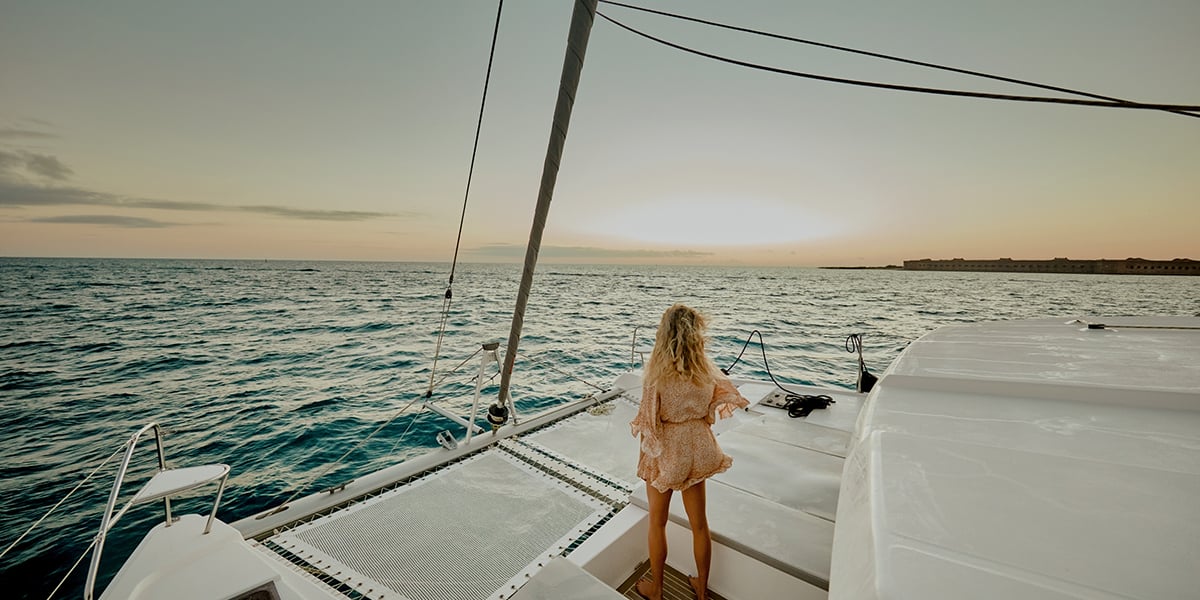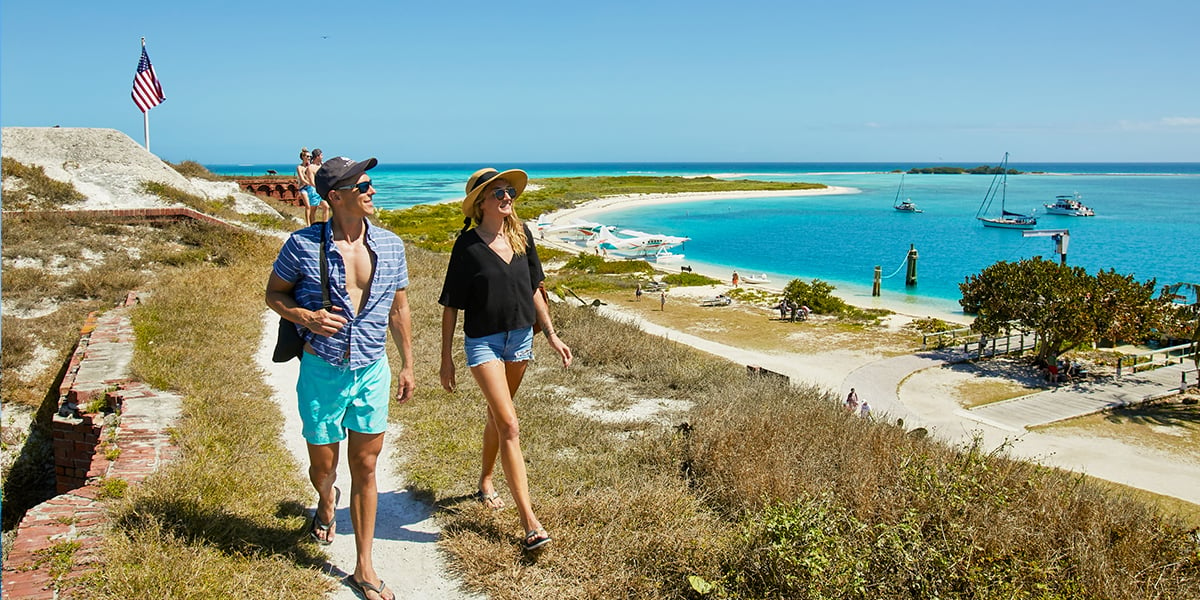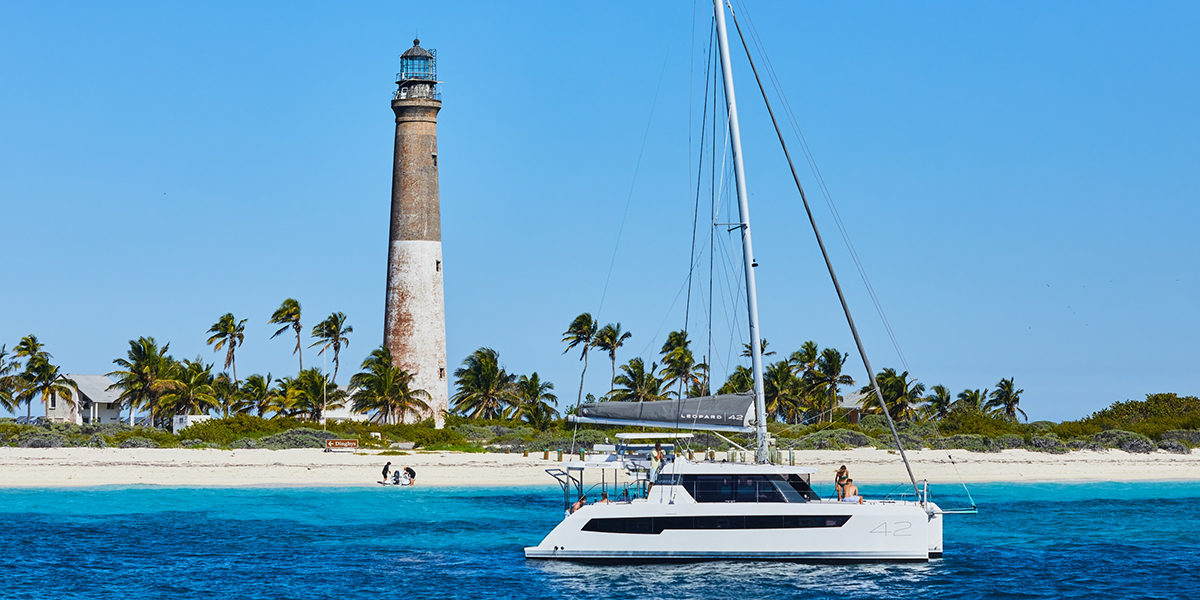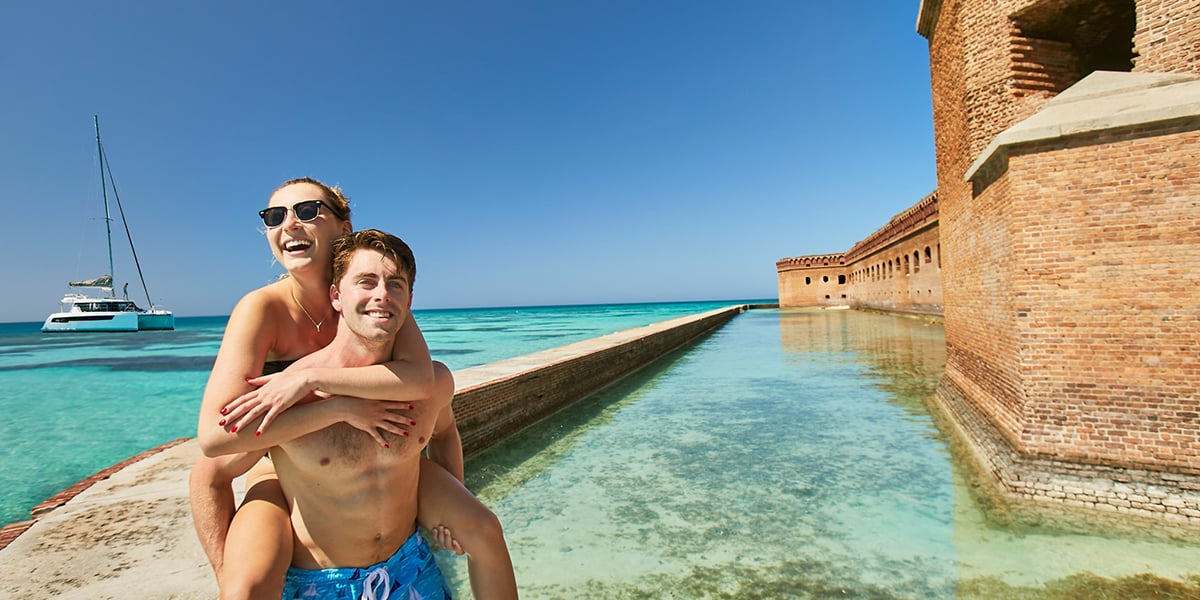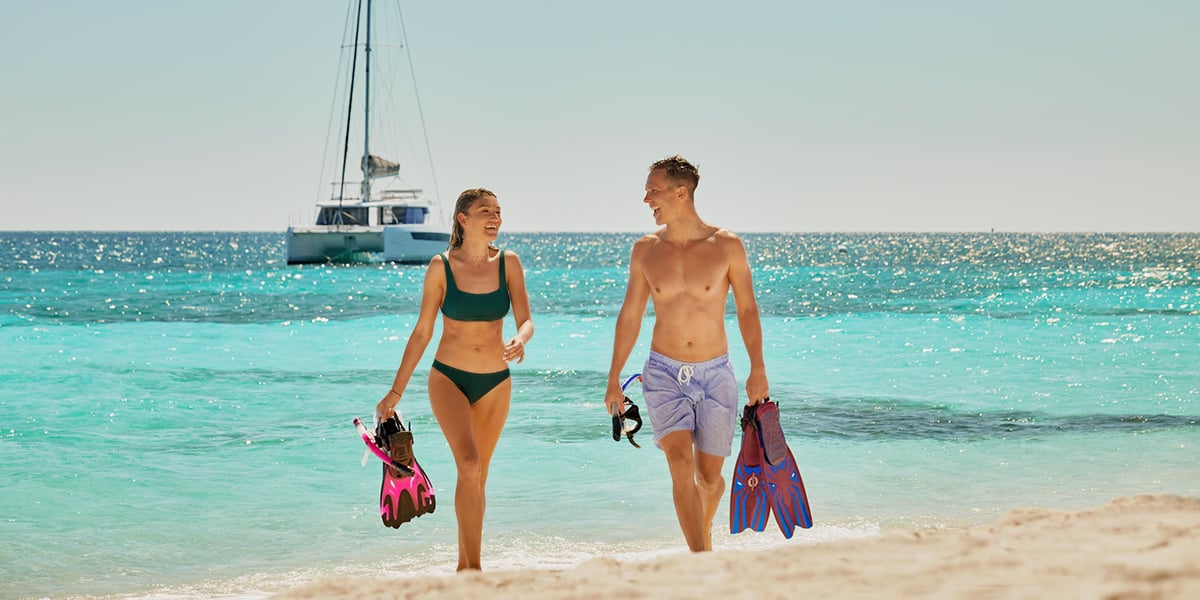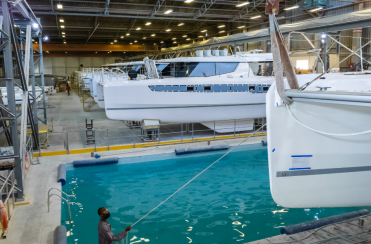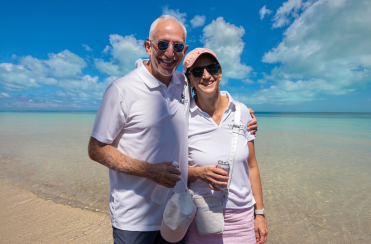Sometimes we need a reality check. Moments that happen when we unplug and forget about the outside world are authentic and unfiltered. How often do you get to enjoy those moments? If you are like most people in the world today, my guess is not nearly enough. If you are looking to unplug for a few days, I highly recommend looking no further than the Dry Tortugas National Park, west/ southwest of Key West in the Florida Keys, to say that these islands are off the beaten path would be an understatement! Enter the perfect place to log out and live…
Getting there
The trip down to the Dry Tortugas took about 32 hours sailing on a Leopard 42 from Fort Lauderdale. The winds were favorable and we took advantage, we flew the code 0 and maintained a decent broad reach, with a little motor sailing here and there, for most of the trip down. You tend to forget the beauty of the water surrounding the Keys until you experience them again, they induce a feeling of bliss. With a crew of three, the night watches went by quickly and peacefully.
We knew were headed in the right direction when we were able to see the slow reveal of a massive coastal fortress known as Fort Jefferson. I came to find out later that Fort Jefferson is the largest brick masonry structure in the Americas, and is composed of over 16 million bricks.
Bye-bye to Wi-Fi… and everything else
Once you are far enough away from Key West, as you journey to the Dry Tortugas, you will notice that your cell service completely vanishes. Our group decided this was the best thing that could have happened. While we had all intentions of unplugging, are you ever really unplugged when you have steady access to your phone and internet? Can you remember the last time you turned your phone off for a full 24 hours? Neither could I, until just a few weeks ago! In a time when outside noise is louder than ever, solitude will keep you grounded. Once we had all accepted we would be “off the grid”, we welcomed the opportunity with open arms.
In addition to no cell towers or Wifi, you will neither find freshwater, fuel, shops or lodging, so provision and water usage is vital. When we said off the grid, we meant it! Consider Murphy’s Law and be sure to bring supplies for more than you intend on staying.
Where to drop the hook?
Garden Key, the island where Fort Jefferson is located, has a nice size fishbowl-shaped anchorage on the southeastern side of the island, 20 ft. – 30 ft. deep with a sandy bottom. From this anchorage the sunsets were stunning and it was the perfect time of year for grilling on the aft deck while we watched the sun go down. When we turned on our blue underwater lights that first evening, the biggest Goliath Grouper any of us has ever seen hanging out under the blue-water lights for the better half of the evening.
Do I need to clear in?
Yes. You are required to clear in upon arrival. The website states– “Boat permits are required for all vessels entering the park before any recreational activity. Even if you are not planning on visiting Fort Jefferson, a boat permit must be filed on Garden Key. Recreational boating permits may be obtained in person through a self-registration system at the main dock house. Permits are free.”
While the boat permit is free of charge, there is an entrance fee for the Dry Tortugas that is $15 per person, and good for seven days. This is an honor system and money is submitted at the same place that you register your vessel on Garden Key.
Discover Loggerhead Key
Just three miles west of Garden Key is the secluded Loggerhead Key. It is worth the trip! One thing you should know before you go is that there is only one mooring ball on the island and anchoring is strictly prohibited– we found that out the hard way when the park ranger stopped by for a visit. As luck would have it, that one mooring ball was available so we raced over to it and tied off to enjoy more island explorations. If the moorings ball is not available, we would suggest taking your dinghy from Garden Key to Loggerhead Key, that is what most cruisers did throughout the day. It might be more difficult to accomplish if the weather is not favorable.
We laid out on the beach, had lunch, explored the area around the lighthouse (you can’t go inside it) and then made our way to another side of the island where we discovered a house split down the middle (no photos, unfortunately) and pristine waters to snorkel. Be careful of glass on this beach– shoes are highly recommended when exploring this island! After making our way back to the boat, we sailed back to Garden Key and anchored up for the evening.
Spending the day at Garden Key
On Garden Key, 16 acres of the island is covered by Fort Jefferson. Garden Key is the home of the Dry Tortugas park headquarters, campgrounds and beautiful beaches for swimming and snorkeling. Fort Jefferson was once a prison in the 1900s. It lands in the middle of Garden Key in the shape of a hallowed circle. Fort Jefferson is surrounded by a large moat and majestic stone walkways. We hiked to the top to take in the surrounding views of Garden Key, Bush Key (which was closed for bird mating season) and the surrounding shades of aqua blue and green water. Sandy beaches cover each side of the island. The water was crystal clear and blue as a diamond. Lying on the beach, soaking up the sun and looking at the historical Fort Jefferson made for a perfect day of exploring and relaxation. Make it a point to spend a full day here exploring and then relaxing.
Diving and snorkeling
It is undoubtedly agreed upon that the Dry Tortugas is hand-down the best diving in the continental U.S. The clarity and visibility are outstanding. One of the most popular spots to dive is the Windjammer Wreck. With depths ranging from zero feet to 20 feet, this is an ideal location for groups are both snorkeling and diving. This three-masted sailing ship wrecked on Loggerhead Reef in 1901 and has since become an artificial reef, attracting fishes of all shapes, sizes and colors.
If you prefer snorkeling, you won’t miss a beat in the Dry Tortugas. On the day you spend at Loggerhead Key, be sure to head over to the north side and check out Little Africa, a great reef to snorkel for people of all ages. The name comes from the reef taking on the shape of the continent of Africa.
Another point of interest for our group was snorkeling the moat wall. While snorkeling in the moat is prohibited, the outside of the wall was a snorkel unlike any other with an intriguing blend of artifacts and marine life. We also chatted with some folks in our anchorage who were planning to dive the wall in the evening. They shared that night diving brings out different sea life and a more intimate experience.
Our crew stuck to snorkeling on this trip, but if you want to look into the underworld and dive all of the spots in the Dry Tortugas, there are plenty of resources online– blogs, park website, etc. for you to research before your visit.
Homeward Bound
After a few days living in a blissful paradise, it was time to raise the sails and head back towards civilization. Being in a time crunch, unfortunately for us, we were not able to wait for a weather window, and thus, our sail back to Key West was not what we had hoped for. Some of our novice sailors grew sea legs as we sailed through the night to arrive in Key West at the break of dawn. Plenty of daylight to explore Duval Street and eat pound after pound of Stone Crab! If only time had been on our side…

